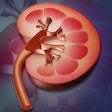Dear LabPulse Member,
The 2019 novel coronavirus (2019-nCoV) continues to be at the forefront for medical professionals, with dramatic moves underway to contain its spread and uncertainty about how long people will need to put up with emergency measures.
According to the World Health Organization, as of February 3 at 16:00 Central European Time, 17,391 cases had been confirmed globally, most of which were reported in China (17,238). There have been 304 deaths in China and one fatality in the Philippines.
As troubling as the news has been to date, figures on the number of people infected with 2019-nCoV may have been vastly underestimated for a range of reasons, including a lack of access to diagnostic tests and a lack of reporting of asymptomatic and/or mild cases. University of Hong Kong researchers estimated that up to 75,815 people in the city of Wuhan had been infected, based on their calculations in a mathematical modeling study published in the Lancet journal.
Demand for effective diagnostics and treatments is high. Experience with two rapid real-time reverse transcription polymerase chain reaction (RT-PCR) tests developed by scientists in Hong Kong and China was just published in Clinical Chemistry. In the U.S., the Centers for Disease Control and Prevention (CDC) has developed its own real-time RT-PCR test for respiratory and serum samples. The agency said that testing must take place at the CDC, although it will soon be sharing tests with U.S. and international partners.
Other LabPulse.com news coverage on the coronavirus front includes the following articles:
- Enrichment NGS emerges as surveillance tool for coronavirus
- Roche, Genomica join crew of vendors with tests for coronavirus
Meanwhile, routine life in the lab goes on. Yesterday, we published a report by contributing writer Joseph Constance on the use of mass spectrometry for clinical applications in labs, including diagnostic applications in infectious diseases. The market for mass spectrometry in clinical labs reached $859 million in 2018, according to Strategic Directions International, a sister company of LabPulse.com.
Recent clinical news included a U.S. National Institutes of Health study exploring the use of a biomarker blood test for predicting acute kidney injury, which is common in people with comorbidities undergoing surgical procedures and costly for healthcare systems. A higher level of soluble urokinase plasminogen activator receptor, a protein made in the bone marrow by immune cells, signals higher risk for injury across risk groups, researchers reported.















